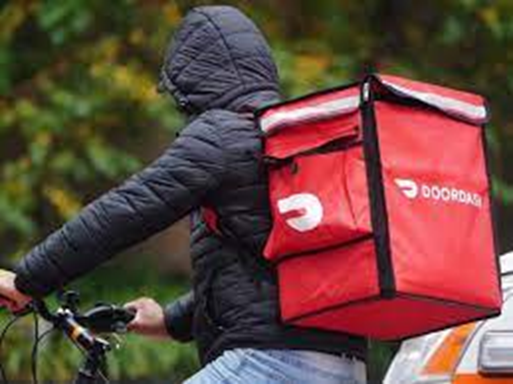Source: DoorDash Exits 15-Minute Grocery Delivery Service in New York (businessinsider.com)
I love Insider (formerly known as Business Insider) and Nancy Luna is one my favorite writers at this publication.
My apologies in advance for including an article that is subscription based, but it was too good not to share. I do highly recommend this financial & business news website and if you sign-up using the code Branded, you will get absolutely nothing b/c I’m just a fan of this media company and Branded has no financial arrangement or commercial deal as a reseller. 😊
In all seriousness, one of the most meaningful blackeyes on the hospitality technology market is the obsession over ultra-fast grocery delivery and DoorDash’s exit is yet another nail in the coffin for this segment of the market.
DoorDash entered the 15-minute delivery space in late 2021 and according to the article, had been testing the ultra-fast service in the Chelsea neighborhood of Manhattan, fulfilling grocery orders out of a single warehouse facility known as a DashMart.
The ultra-fast grocery delivery space grew tremendously starting in the spring of 2021 and has all but collapsed. The article references CB Insights as the source of truth with respect to the $12 billion investors spent on companies that promised to deliver groceries in under 30 minutes.
I’ve made my opinions on the ultra-fast grocery delivery space very clear and specifically how I’m old enough to remember companies such as Urbanfetch, Kozmo.com and Webvan. I think the combined losses from these three ultra-fast grocery delivery companies from a few decades ago might have been on or about $1 billion. Sometimes what’s old is new again and in the case of the more current version of the ultra-fast delivery companies, it seems they’re meeting the same fate.
I’m NOT highlighting this article or the collapse of the ultra-fast grocery space to throw shade on anyone, believe me, I've personally and Branded as well, have made our own fair share of mistakes and missteps.
I’m highlighting the issues in the ultra-fast grocery space b/c it deserves some level of comparison to the food delivery space and the business of the third-party delivery platforms (also known as the “DSPs”).
Delivery is hard! Delivery is expensive! Whether its groceries, food orders or otherwise. The act of getting something from point A to point B requires logistics and human capital. The value of the items being moved and the overall value of the load (the total value of the goods on the truck, in the car or on the bike at one time) is critically important. The perishable nature of the grocery and food deliveries is a particular challenge.
To emphasize this point of comparison, I want to share one of my favorite sources of information and truth, Kristen Hawley and her newsletter, Expedite.
This may be a Hospitality Headline first where I’m highlighting an article within a section that’s highlighting an article, but trust me, Kristen’s article is worth a read: Only the courts can save them - by Kristen Hawley
Please don’t misunderstand, the food delivery business is NOT going away (and neither are ghost and dark kitchens, but I've already written about that), but again, the cost of getting food from point A to point B is expensive and still requires a human to do it.
If you want to refer to this transfer of an item from point A to point B as something akin to convenience, then we all need to accept that convenience is usually synonymous with “costs more.”
Please don't hate the players, but instead hate the game. Delivery will not and cannot be inexpensive. In fact, I think we should throw out the concept of "expensive" or "inexpensive" and instead ask the question, is it worth it? Did you get "value" for the amount of money you paid. Let's judge the delivery and many other aspects of the hospitality industry by a standard of value and you might look at things differently.



